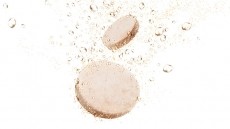Probiotics may cut diarrhoea amongst the elderly
people receiving antibiotics, reports new research that could offer
savings to public health services.
Mary Hickson from Imperial College, London, writing in the British Medical Journal , reports that hospital-bound elderly patients receiving antibiotics experienced 22 per cent less cases of diarrhoea if probiotic drinks.
According to the researchers, this prevention could lead to significant savings compared to stand treatment.
"The cost to prevent one case [using probiotics] would therefore be £50 (€74; $100) for antibiotic associated diarrhoea and £60 (€89; $120) for C difficile associated diarrhoea, excluding dispensing and nursing costs," wrote the researchers.
"Evidence suggests that additional treatment costs per patient for C difficile associated diarrhoea are on average $3669 (£1835, €2738) in the United States and £4000 (€5920, $8000) in the United Kingdom, mainly because of increased length of stay in hospital but also because of the use of vancomycin.
"Clearly substantial savings could be made by the routine use of probiotics," they state.
Between five and 25 per cent of patients experience diarrhoea, including Clostridium difficile associated diarrhoea, as a complication of treatment with antibiotics.
The researchers recruited 135 people from three London hospitals aged over 50 and receiving antibiotics for various reasons, and randomly assigned them to receive either a commercially available probiotic yoghurt drink or a longlife, sterile milkshake in a randomised, double blind, placebo-controlled design.
The probiotic yoghurt (Actimel, Danone) contained Lactobacillus casei DN-114 001
( L. casei imunitass ) (100 million colony forming units/ml), S. thermophilus (100 million cfu/ml), and L. bulgaricus (10 million cfu/ml).
Drinks were given twice a day, within 48 hours of the people starting antibiotic therapy and continued for one week after the antibiotics were stopped.
Volunteers were followed for four weeks.
According to the BMJ results, the probiotic-supplemented group fared much better, with only 12 per cent of patients developing antibiotic-associated diarrhoea, compared to 34 per cent of the placebo group.
Of the probiotic group of patients, none developed C.difficile associated diarrhoea, compared to 17 per cent of people in the other group.
"Twice daily intake of a probiotic drink containing L casei, L bulgaricus, and S thermophilus for one week longer than the duration of antibiotic treatment can prevent diarrhoea associated with antibiotic use and that caused by C difficile," wrote Hickson.
"This is a major advance on previous meta-analyses, which called for further definitive trials and expressed considerable doubt as to the efficacy in preventing C difficile associated diarrhea," she added.
The researchers also noted no adverse effects related to the interventions and that compliance was good, with 75 per cent of the probiotic drinks consumed by the patients.
The study was funded by Healthcare Foundation and Hammersmith Hospital Trustees research committee, and Danone Vitapole.
Three of the researchers admit to receiving funding from Danone to attend Danone International Conventions on Probiotics.
Prof. Bulpitt is a member of Danone UK advisory group.
The study was welcomed by Danone.
Dr Jean-Michel Antoine, science director at Danone, said: "There is already a host of clinical evidence that demonstrates the benefits of Actimel, however, Danone believes that the results of this trial are particularly significant.
This study supports the fact that Actimel is scientifically proven to help support the body's natural defences.
Danone would certainly support the researchers' observation that substantial savings could be made by the routine use of this specific probiotic."
"The findings of this study are specific to Actimel and its unique strain Lactobacillus casei DN-114 001, and can't be extrapolated to other probiotic products," he added Source: British Medical Journal Published on-line ahead of print, doi:10.1136/bmj.39231.599815.55 "Use of probiotic Lactobacilluspreparation to prevent diarrhoea associated with antibiotics: randomised double blind placebo controlled trial" Authors: M. Hickson, A.L. D'Souza, N. Muthu, T.R Rogers, S. Want, C. Rajkumar, C.J. Bulpitt












